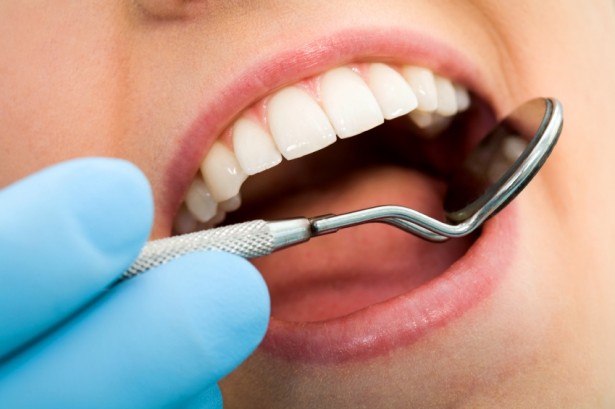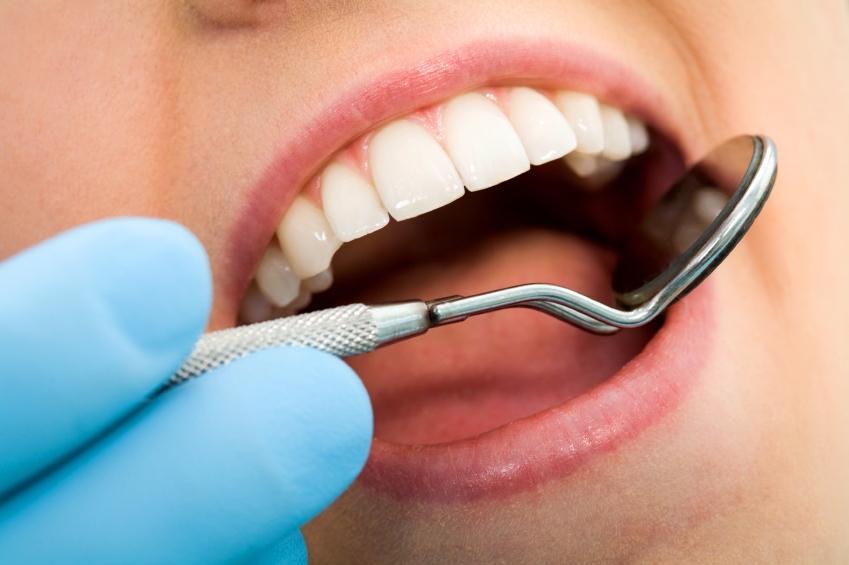 It seems innocent enough. Your dentist is giving you a new filling. You get some of those little metal slivers in your mouth and he tells you take a swig of water. Rinse and spit.
It seems innocent enough. Your dentist is giving you a new filling. You get some of those little metal slivers in your mouth and he tells you take a swig of water. Rinse and spit.
No problem, right?
Unfortunately, each one of those slivers is about half mercury. Multiply that simple routine millions of times, and you have the reason dentists have become the leading source of mercury pollution in our country’s wastewater. Each sliver of mercury down the drain ends up in wastewater, then the nearest river or bay, and ultimately in the fish we eat.
In fact, at least 40 percent of mercury flowing into municipal wastewater treatment plants starts out in dentists’ offices. And those plants aren’t set up to keep all that mercury out of the environment.
The Environmental Protection Agency recognizes the danger of mercury in fish, so you would think it would be all over this, as part of its job to protect us from harmful pollutants. Unfortunately, it has given dentists a free pass.
In December 2008, during the waning days of the Bush administration, the EPA struck a deal with the American Dental Association, the trade association for most of America’s dentists. That midnight deal, officially known as a Memorandum of Understanding, or MOU, allowed dentists to avoid being subject to federal guidelines on mercury emissions. Instead, the ADA promised to encourage its members to voluntarily install “amalgam separators,” which can dramatically reduce the waste from the mercury in dental fillings.
Not surprisingly, that hasn’t happened. The volunteer approach has been a failure. Our research at the Mercury Policy Project has found that of all the amalgam separators sold between 2004 and 2009, just 13 percent of the purchases were in states where dentists were using them voluntarily. Only 11 states now regulate mercury emissions from dentists’ offices. In the rest, they remain major polluters.
It’s not just our group that recognizes the fruitlessness of having the ADA set the agenda. At a congressional hearing this week in Washington, D.C., Rep. Dennis Kucinich (D-Ohio), chair of the House Domestic Policy Subcommittee, said his staff’s research found that “dentists, in fact, are not adopting amalgam separators.”
At the same hearing, Steven Brown, representing state environmental agencies — which weren’t privy to the EPA/ADA agreement until it was a done deal — testified, “For voluntary programs as the solution, the time has passed.”
The Quicksilver Caucus, a coalition of state government officials, found that same thing — very few dentists install anti-pollution devices unless required to by law.
Naturally, the ADA continues resisting any change to the current arrangement. It now claims to have set annual goals of getting 20 to 25 percent of its members in non-regulated states to purchase amalgam separators. But the ADA has shown that on this issue they’re not to be trusted. It’s still claiming on its website that “dental amalgam” has little effect on the environment, and that this form of mercury isn’t found in fish.
That’s just not true. As the EPA itself notes, “when amalgam enters the water, microorganisms can change it to methylmercury, a highly toxic form that builds up in fish.” What’s also true is that a lot of dental mercury — as much as seven to nine metric tons a year — escapes into the atmosphere, much of it coming from the nation’s crematoria. Those levels are only expected to rise during the next decade, due to an increase in the number of cremations, and also in the average number of fillings per person cremated.
Dental mercury pollution is a growing threat to our health, and particularly our children’s developing brains and nervous systems. Does anyone really expect gentle nudges from a trade association to make the difference? It’s time for the EPA to do its job. We need guidelines for mercury discharges from dental facilities, including the installation of amalgam separators. We need an updated emissions inventory and regulations for crematoria. And EPA must do all this out in the open. No more secret meetings and sweetheart deals.
Only then can we rinse and spit without poisoning fish.


